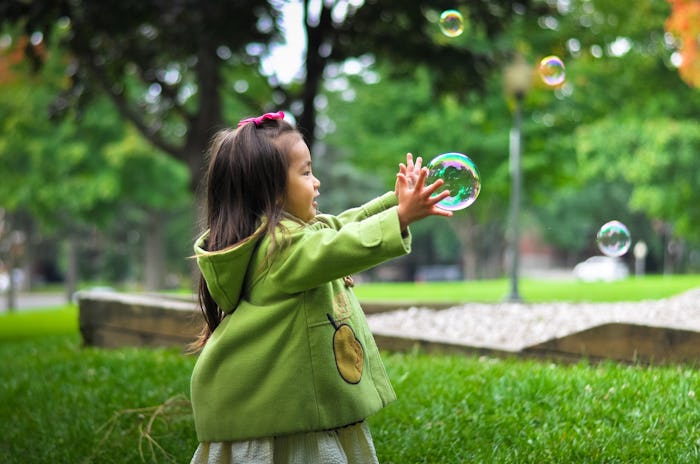There are many parenting styles that have become popular over the years. One that comes to hime, and makes your child the center of your universe, is attachment parenting (AP.) Although people have been parenting for centuries without the help of designated styles, you may not want to jump into the parenting thing blindly. So, in researching this particular parenting style, you may have a few questions like what is attachment parenting and how attachment parenting affects kids later in life.
According to Web MD, attachment parenting is hyper-focused on the nurturing connection that parents can develop with their children. Honing in on this bond is touted by advocates as the ideal way to raise secure, independent, and empathetic children. Some of the key tenants of AP include breastfeeding on the baby's cue, bed-sharing, and continuous and constant baby wearing.
One of the biggest supporters and promoters of this parenting style is Dr. William Sears who, in his literature, has made claims that attachment parenting has long standing benefits that are seen well into adulthood. In researching the topic there seemed to be a real lack of modern, solid evidence that backs up the attachment parenting claims specifically, as attachment parenting itself hasn't been under the microscope since Psychologist Mary Ainsworth did her well-known assessment called the Strange Situation Classification (SSC) in 1969. According to Simply Psychology, the SSC assessment investigated how attachments can vary among children. Given the date of the study you can't really use it to back up claims, but looking to other studies that have research goals loosely related to the topic at hand, you can get an idea of what the impact might be on these children as they get older.
1It Promotes Independence As They Get Older
According to the Ask Dr. Sears website, kids who are securely attached to their caregivers are more independent and confident to explore. The site did not point to specific studies to solidify this claim, but it did provide the theory behind the claim. The so-called deep groove theory is that an infant records experiences and relationships in grooves in grooves in the brain. How deep those grooves go supposedly is in direct proportion to the level of attachment. The deeper the attachment, the deeper the groove, the more ingrained the memory. Therefore when a child is separated from their caregiver, they're more secure in their feeling and memory of that person. In turn, this makes the attached child more inspired and confident to explore their environments which is a skill that supposedly follows them into later childhood.
2It Results In Better Behaved Children
According to a study published in Infant Child Development that looked at how parental stress impacted a child's attachment security, it was noted that parents who responded sensitively in infancy and early childhood to their child's positive and negative emotions, had more secure children. Similarly, the American Psychology Association noted that more secure children are thought to have less behavioral issues and commit less violence when they're older according to American Psychological Association.
3It Improves Development In Growing Babies
The Dr. Sears website claimed that babies who are raised via attachment parenting fuss less and, therefore, have more time to explore their environment during non-cry times. The theory is that babies who are in the quiet but alert state are more receptive to learning new things. According to the Baby Center, kids that experience stressful and toxic situations or trauma are at risk for having their brain shrink. A shrinking brain would no doubt stunt development in some areas. The same site noted that if a child had an emotionally-positive and secure parent or caregiver the shrinking effects would not take hold, or if they do initially, they could go away. Having an elevated development status would seemingly point to the theory that more secure babies grow into smarter children.
4It Makes Kids Smarter
One of the principles of attachment parenting is breastfeeding. No doubt you've heard the claims about the connection between a breastfed baby and their intelligence. Today referenced a study that followed people from 0 to 30 years old, found that the breastfed people were more intelligent and earned more than those who were not breastfed. It's important to note however, that the study did not describe the socioeconomic status of each person throughout their 30 years.
The other big claim by Dr. Sears and attachment parenting advocates is that AP nourishes a child's brain and gives it "food" for necessary connections, in turn making the child smarter.
The validity of these AP claims are hard to prove given the available research, but there is no evidence that attachment parenting actually hurts a child in infancy or later in life. As long as the basis of your parenting style is to be loving and nurturing period, there's really no way you could go wrong. You're going to raise amazing humans who will prosper in life, whether you practice and label your parenting style or not.
